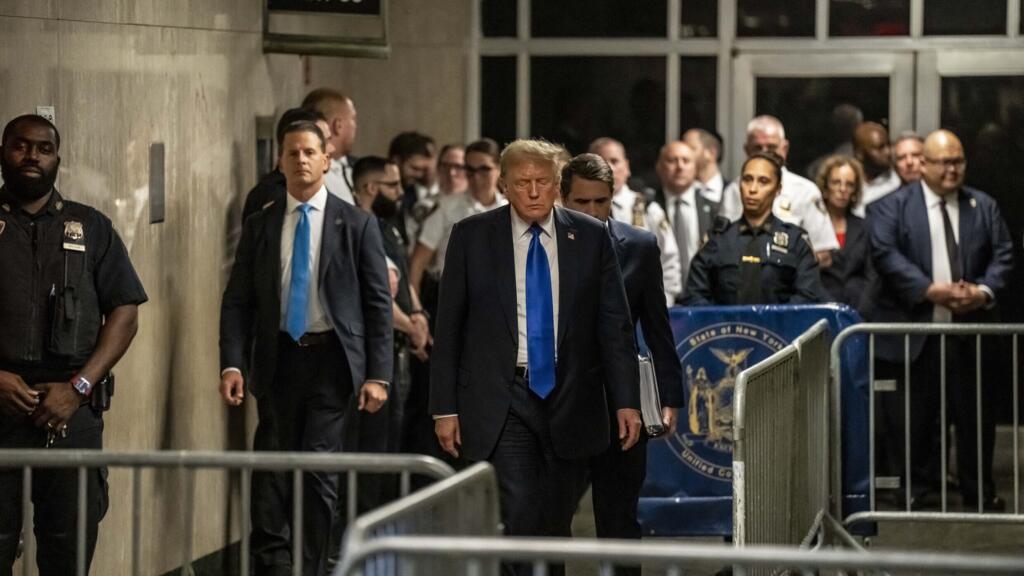Voters in North Macedonia will head to the polls on Sunday in local elections seen as a key test of the ruling government’s strength – and also a test of the country’s patience amid a prolonged blockade on its path to European Union (EU) membership.
Although the elections tend to focus on municipal issues, the campaign has been dominated by national questions: identity, minority rights and the stalled EU accession process.
In the capital, Skopje, serious local challenges remain unresolved. The city of about 520,000 people still lacks a waste water treatment plant and has no public transportation options other than buses. The next mayor will also need to adopt the long-delayed “Common Urban Plan for 2022-2032” and oversee preparations for “Skopje – European Capital of Culture 2028”.
“Despite being a local election, the campaign is driven by national questions – identity, minority rights and what is needed to prevent EU accession,” Dimitar Nikolovsky, executive director of Eurothink – Center for European Strategies, told DW.
There is a major deadlock over joining the European Union
Political rivals have spent much of the campaign trading blame over who is responsible for the impasse in North Macedonia’s EU membership talks.
The country became an EU candidate in December 2005, but almost two decades later it is still stuck at the beginning of the process – blocked by Bulgaria and having only held the first intergovernmental conference, which opens accession negotiations.
Vanko Filips, leader of the opposition Social Democratic Union of Macedonia (SDSM), launched the campaign by introducing a proposal to define the state’s position on the country’s EU path. He urged the government to fulfill obligations under the framework of EU membership negotiations by February 10, 2026.
Phillips said, “If we achieve national consensus and work intensively on reforms, no one will be able to stop us on our way to the EU.”
He also said he would vote to include the Bulgarian ethnic minority in the Macedonian constitution, along with other ethnic communities – a move that is expected to prompt Bulgaria to lift its veto imposed in November 2020 on the start of membership negotiations.
The proposal is a challenge to Prime Minister Ristijn Mikovski, leader of the ruling VMRO-DPMNE (Internal Macedonian Revolutionary Organization – Democratic Party for Macedonian National Unity) party, who rejected it, saying it fails to protect Macedonian national interests. During pre-election rallies, Mikovski accused the opposition of yielding to Bulgaria’s demands.
“Unless there is a political agreement that lowers the temperature and provides credible guarantees from the EU in line with our government’s expectations, I would expect continued impasse rather than a quick breakthrough,” Eurothink’s Nikolovsky said. “However, there are indications that the government may propose another solution before the end of the year.”
EU reaffirms its stance
Just days before the election, European Commission President Ursula von der Leyen visited Skopje and met with Mikovskis. The government confirmed that EU membership remained a strategic goal, but stressed that it would not compromise national dignity.
“This government no longer has any intention of losing dignity and respect,” Mikowsky said before the meeting.
Von der Leyen reiterated that North Macedonia must meet its commitments under the EU framework.
“The next and only step before starting negotiations is clear – you need to make agreed constitutional changes,” he wrote on Twitter after the meeting.
Public opinion and elections
Public opinion is deeply divided about the direction of the country. A poll conducted in October by the Institute for Political Research for Macedonian public broadcaster MRTV showed that 28.3% of citizens believe the country is moving in the wrong direction, while 27% say it is on the right track.
Despite the polarization, the ruling VMRO-DPMNE party looks set to sweep Sunday’s election. VMRO-DPMNE received 26.7% support in the survey, while SDSM received 11.1% support. The Levika (Leftist) party, which advocates closer ties with Russia and China, received 5.5% support. Independent candidates received 4.3% of the vote, while smaller government coalition partner ZNAM received 3.8%.
Among the Albanian community, which comprises about a quarter of the country’s 1.8 million strong population, the opposition National Alliance for Integration (BDI) leads with 9.9%, while the ruling coalition of Albanian parties, VLEN, has 7.5%.
The Albanian people have a special place in North Macedonia. Albanian is the second official language of the country and a certain percentage of jobs in the public sector are allocated to Albanians. Albania’s actions also have an impact on the politics of the Albanian community of North Macedonia. Tirana’s start of EU membership negotiations last year has strengthened BDI’s position, as the neighboring country has already opened five out of six negotiation clusters.
BDI leader Ali Ahmeti said the Macedonian government’s stalled EU negotiations and relations with the regime of Serbian President Aleksandar Vucic are problematic.
“Next spring we have to go early [national] “Elections that will be held in a spirit of legitimacy and national pride,” Ahmeti said.
Local elections as a political test
Eurothink’s Nikolovsky described Sunday’s local elections as a “stress test” for the government’s mandate.
“Given recent differences between ethnic Albanian partners, the results in key Albanian-majority municipalities will be monitored for signs of a coalition change, with a possible change in the BDI to negotiate positions in the government,” he said.
He said the campaign has been highly polarized, but found no sign of foreign interference similar to the Russian-style operations seen in Moldova.
“I think there hasn’t been that much interest in North Macedonia from Russia,” Nikolovski said.
The State Election Commission confirmed 577 lists of candidates for local councils. Voters will elect councilors on Sunday, with a possible vote for the mayor’s race taking place on November 2.
A total of 309 mayoral candidates are competing in 81 municipalities, but only 32 are women.
Edited by: Keno Versace






Leave a Reply